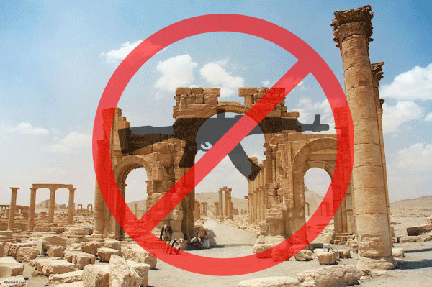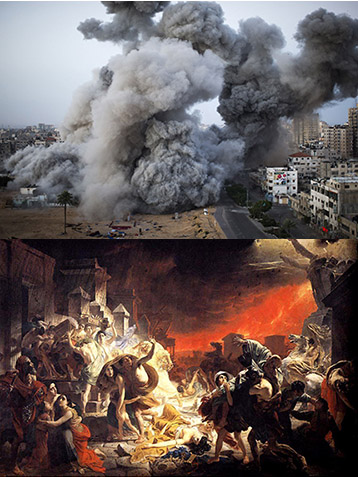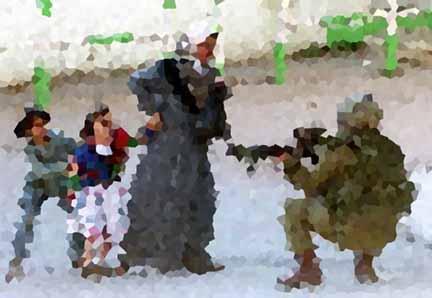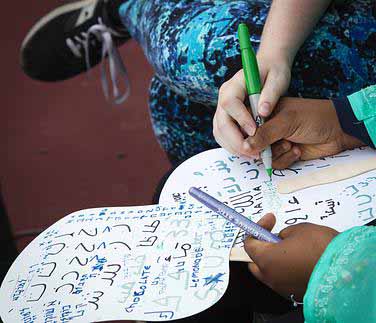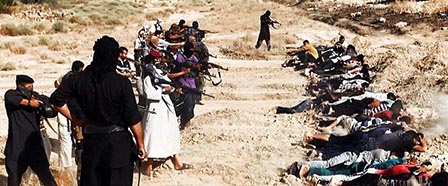
In a recent article just published in the London Review of Books, Patrick Cockburn, a veteran reporter on the Middle East, paints a disturbing picture of the rise and spread of ISIS. He notes that this zealous group now controls, in one way or another, a swathe of Syria and Iraq greater in area that Great Britain and including six million people. Here is his blunt assessment:
The birth of the new state is the most radical change to the political geography of the Middle East since the Sykes-Picot Agreement was implemented in the aftermath of the First World War. Yet this explosive transformation has created surprisingly little alarm internationally or even among those in Iraq and Syria not yet under the rule of Isis. Politicians and diplomats tend to treat Isis as if it is a Bedouin raiding party that appears dramatically from the desert, wins spectacular victories and then retreats to its strongholds leaving the status quo little changed. Such a scenario is conceivable but is getting less and less likely as Isis consolidates its hold on its new conquests in an area that may soon stretch from Iran to the Mediterranean.
While Cockburn is right to say that insufficient attention has been paid to the rapid rise of this radical group, it is premature to think this is the most radical change since the Sykes-Picot Agreement at the end of World War I. A lot of change has shaped the Middle East in the past century, not least the establishment of Israel. ISIS is not an Ibn Khaldunian Bedouin ghazwa about to overthrow either Syria or Iraq. Nor do self-proclaimed Mahdis and Caliphs have a chance to endure in the modern era. As Cockburn notes, there is a loose alliance of the hardcore ISIS group with local Sunni groups in Iraq opposed to the rule of President Nouri al-Maliki, who is likely to be replaced in the near future. Few of these tribes would welcome the ISIS rules of conduct. To be sure, the Iraqi army trained by the United States is inept to an extraordinary degree, but any attack of armored cars and tanks without air support on Baghdad would be foolhardy.
I am not a prophet, nor do I wish to be, but it is hard to imagine that ISIS can continue to advance without air support and more than captured weapons from retreating Iraqi military. As the U.S. has now begun bombing ISIS targets, they will have a difficult time using the captured tanks. The Kurds may have been pushed back from their border, but even Saddam with his superior weaponry was never able to take control of Kurdistan. Nor will the Western powers watch on the sidelines if ISIS did continue to make serious inroads. Nor will Iran, which has military prowess, allow the vehemently anti-Shia ISIS to move close to the Iranian border. The ISIS blitzkrieg has about as much chance for success as Saddam’s ill-fated attack on Khuzistan after the fall of the Shah. While the success of ISIS thus far will fill their ranks, these will be amateurs, not trained (even poorly trained) soldiers.
The seeds of self-destruction are rife in ISIS with its extreme antagonism to other Muslims, Christians and Yazidis, its draconian ideas for applying medieval punishments, the blatant sexism that includes raping women (imagine if any of the raiders in the time of Muhammad came back and reported having raped enemy women…), and inability to ever gain acceptance by major outside powers. ISIS does not present a viable form of Islam as it plays on the distorted sectarian conflict that has riven Iraq since the disastrous American intervention. Before long ISIS will be a footnote to the ongoing conflict in the region.
ISIS right now is indeed a nightmare, but the devastating impact goes beyond the people brutally slaughtered and the human rights violated. ISIS is about the worst possible thing that can happen for most Muslims. The billion and a half Muslims in the world are a diverse group stretching across ethnic groups and nation states, but very few are extreme jihadists or support a return to a medieval caliphate. Anyone who actually knows the history of the caliphate would hardly want to return to such a corrupt and unstable system of government. The damage that ISIS is doing to the perception of Islam in the West is as bad, perhaps even worse, than that of Osama Bin Laden’s attack on the Twin Towers. ISIS is a godsend to Islamophobes, who constantly focus on this kind of violence as an essential part of Islam. The fact that ISIS does not have support from major Islamic leaders or groups does not matter.
It is obvious that the rebel leader al-Baghdadi has little regard for the example of the Prophet Muhammad, who would never have condoned the kind of violence that ISIS is perpetrating. This is a political battle covered with a hateful religious veneer. Al-Baghdadi will meet his fate, no doubt in the near future, but it will not be in paradise. ISIS is not here to stay, but the damage it can do is a sad commentary on the endemic violence that has engulfed much of the Middle East and abused the image of Islam.
